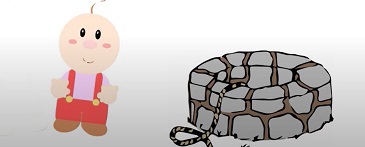From the commentary to Case 6 of the Book of
Serenity: “The Great Master Nagarjuna said, ‘Wisdom is
like a mass of fire – it cannot be entered from any side.
(般若如大火聚。四面不可入。)’
Yet he also said,‘Wisdom is like a clear cool pool, it
an be entered from any side.’
(般若如清涼池。四面皆可入。)’”
Category: confucius
人生而靜,天之性也 (from “The Book of Rites”)
人生而靜,天之性也
Paraphrase: Humans are born with a peaceful, qentle nature. The nature of Heaven is also like this.
Charles Muller on interpenetration (通達) and essence-function (體用)
Exclusive reliance on Western modes of interpretation need not in itself be harmful. But it appears as if it can be, as we can see a distinct tendency in recent works on East Asian religion, and especially East Asian Buddhism, to regard the object of study in a disparaging manner. To, for example, wrap up the texts of the entire East Asian Ch’an/Sŏn/Zen traditions as being little other than rhetorical devices, or to report on the East Asian religious traditions by concentrating on examples of how poor East Asian Buddhists supposedly were at grasping the implications of their own writings. Or, on the other hand, to suggest that now that ten percent or so of the East Asian canon has been rendered into English, it is time to stop expending our energies in the effort of translation and interpretation, and rather devote ourselves toward the investigation of living traditions. Over its first century of existence, Western scholarship on the East Asian religions has tended toward two extremes: naive acceptance (seen during earlier periods of scholarship) or a subtle, but nonetheless perceptible arrogant downlooking, in which the leading figures of the tradition are seen as being wholly preoccupied with sectarian motivations, and either hopelessly simple-minded or untrustably deceptive.
譬如北辰 (for example, the North star)
From the Analects:
[2-1] 子曰。爲政以德、譬如北辰居其所而衆星共之。
[2:1] The Master said: “If you govern with the power of your virtue, you will be like the North Star. It just stays in its place while all the other stars position themselves around it.”
Confucius says: “No pain, no gain” (Analects 7:8)
[7-8] 子曰。不憤不啓、不悱不發。擧一隅不以三隅反、則不復也。
[7:8] The Master said: “If a student is not eager, I won’t teach him; if he is not struggling with the truth, I won’t reveal it to him. If I lift up one corner and he can’t come back with the other three, I won’t do it again.”
“I am bothered when I do not know others.” (Analects 1:16)
子曰。不患人之不己知、患不知人也。
Charles Muller’s translation:
[1:16] The Master said: “I am not bothered by the fact that I am unknown. I am bothered when I do not know others.”
Confucius asks about everything. (Analects 3:15)
子入大廟、每事問。或曰。孰謂鄒人之子知禮乎。入大廟、每事問。子聞之、曰。是禮也。
When Confucius entered the Grand Temple, he asked about everything.
Someone said, “Who said Confucius is a master of ritual?
He enters the Grand Temple and asks about everything!”
Confucius, hearing this, said, “This is the ritual.”
[Analects, 3:15]
子曰。學而時習之、不亦說乎。 (Analects 1:1)
Note: The construction (Y) 不亦 (X) 乎 means, “isn’t Y X?”, or, more wistfully, “Y … isn’t it X?”
子曰。
學而時習之、不亦說乎。
有朋自遠方來、不亦樂乎。
人不知而不慍、不亦君子乎。
The Master said,
“Learning, and then frequently practicing, isn’t it a pleasure?”
“To have one’s friends visit from afar, isn’t it a joy?”
“To be unknown without resentment, isn’t this [the sign of] a person of great virtue?”
“All people have it, but the worthy are able to be consistent in it.”
Let’s look at two Chinese characters. Not two characters squished together to make one character, and not a “compound” character, either, but rather two separate characters one after the other that make a complete sentence. So here they are: 性善 (pinyin: xìng-shàn). The meaning of this sentence, which is one of the most important utterances […]
“Does Heaven speak?” (Analects 17.17)
From The Analects, 17.17. In the Analects 17.17 (the numbering varies), we have a very interesting “saying” of Confucius with a meaning that is pretty easily gleaned from a literal translation of the characters. At least that’s how it seems to me. Presumably someone with a deeper understanding of Classical Chinese (and that certainly wouldn’t […]




